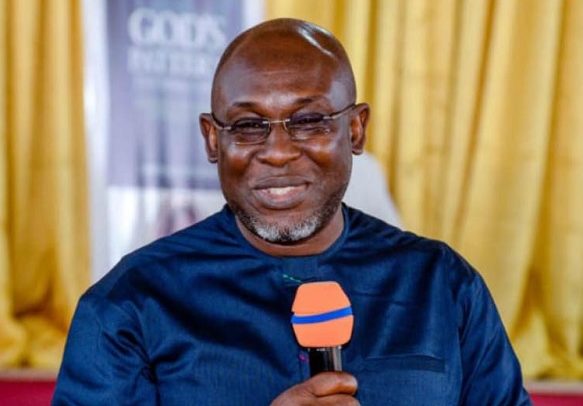A 2021 video of Kofi Bentil, Vice President of IMANI Ghana, has resurfaced, contradicting his recent statements on law enforcement. In the video, Bentil asserts that the police have the right to effect an arrest and investigation, emphasizing that citizens should respond positively to police invitations and submit to their processes.
This stance was initially taken during the attempted arrest of MP Francis Sosu at a church service, which drew criticism from civil society.
However, Bentil’s recent comments have sparked controversy, as he suggested that citizens should “shoot to kill” masked state agents attempting to make an arrest. This rhetoric has drawn sharp rebuke from figures like Nii Kpakpo Samoa Addo, who pointed out the inconsistency in Bentil’s positions. Samoa Addo remarked, “Today he says state security men effecting lawful arrest should be shot. God alone is the truth”.
The discrepancy in Bentil’s statements has reignited discussions on selective outrage and double standards among Ghana’s legal and political elites. Critics argue that Bentil’s recent rhetoric has dangerous implications and that positions on law enforcement should be grounded in principle, not political convenience.
This controversy raises questions about the consistency of Ghana’s democratic values and the role of partisanship in shaping public discourse. As the debate continues, it remains to be seen how Bentil’s comments will be received by the public and whether they will have any significant implications for Ghana’s democratic development.
The situation has also sparked a broader discussion about the need for transparency and accountability in Ghana’s government. Many experts argue that the country’s institutions are in need of reform to ensure that they are more inclusive and representative of the needs of all Ghanaians. This could involve changes to the way that government officials are held accountable for their actions, as well as reforms to the electoral commission to ensure that it is more independent and impartial.
As the controversy continues to unfold, it remains to be seen how the government will respond to the allegations and the public’s reaction. One thing is certain, however: the outcome will have significant implications for Ghana’s democratic development and the rights of its citizens.
In the midst of this controversy, it is essential to consider the broader implications for Ghana’s democracy. The country’s democratic institutions have been praised for their stability and effectiveness, but challenges remain. The government’s response to these challenges will be crucial in maintaining public trust and confidence in their leadership.
The incident also raises questions about the role of civil society in Ghana’s democracy. As a key player in promoting transparency and accountability, civil society organizations have a critical role to play in holding the government accountable for its actions. However, their actions must also be guided by a commitment to transparency and accountability.









